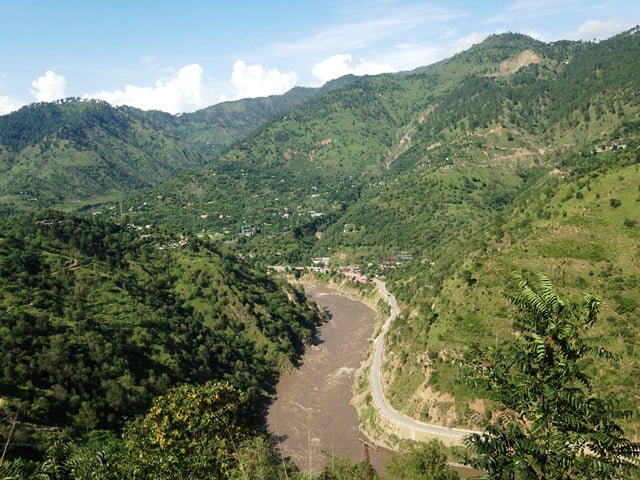
With Pakistan, especially its vast mountain communities facing frequent impacts of climate change which grow in intensity every year, environmental experts on Saturday called for biodiversity mapping and adequate data management for conservation apart from halting mafias and illegal land-use.
This was stated by experts and subject specialists during a webinar on “State of Pakistan’s Mountain Biodiversity” on Saturday. The webinar had been organised by the Development Communications Network (Devcom Pakistan) and DTN in connection with the 10th Pakistan Mountain Festival to mark the International Mountain Day.
Food and Agriculture Organisation (FAO) Pakistan Deputy Country Representative Farrukh Toirov said that about 60% of Pakistan is mountainous. Of these, 50% are biodiversity hotspots and 30% are key biodiversity areas.
Globally, Toirov said, mountains cover 27% of earth’s land surface, but provide 60-80% of freshwater and hence feed hydro and wind energy, and food. About 15% of the world’s population live in mountain areas and most of them live below the poverty line, and one in two face the threat of food insecurity.
Toirov suggested a six-pointed action agenda to combat the challenges confronting mountain biodiversity, including increased investment in research and sound data collection, enhancing local capacity to reduce biodiversity loss.
He suggested educating policymakers to promote conservation actions and increase the resilience of mountain communities, engage and advocate with conventions, networks and movements, support sustainable agriculture in mountains to reverse the agro-biodiversity loss and promote indigenous knowledge and its role in maintaining mountain biodiversity, agro-ecosystems and improving food security.
Ev-K2-CNR Senior Scientific Advisor Ashiq Khan urged the government to develop a national mountains biodiversity policy to fill serious gaps in biodiversity conservation including research, data collection, indigenous knowledge and cultural practices.
One concern Ashiq raised was that the steady stream of mountaineers and mountain tourists have dumped tons of waste at base-camps and along the routes to the mountain tops.
“We need to have mechanisms to handle it too,” he said.
The scientific advisor also suggested that instead of building national parks, biospheres should be set up.
World Bank Group Senior Technical Advisor Kiran Afzal said their projects are promoting responsible tourism by engaging communities and the corporate sector to reduce and recycle solid waste.
The private sector needs to be sensitised to take up conservation approaches, Afzal said.
Water and climate change expert Ali Tauqeer Sheikh said that a rapidly increasing population and the absence of proper resource management is the big challenge for the country.
On one hand, loss of mountain biodiversity is causing scarcity of water resources while on the other, the excessive use of fertilizers and genetically modified seeds are also harming the fragile ecosystems.
WWF Pakistan’s Senior Biodiversity Director Rab Nawaz suggested setting up a centre of excellence on mountain research which is staffed with qualified mountain biodiversity conservation and sustainable development experts to devise an integrated master plan on the use of mountain resources.
Published in The Express Tribune, December 13th, 2020.


































-(1)1714378140-0/AliAminMaryam-(4)-(1)1714378140-0-270x192.webp)

1714370039-0/ojwilson-(1)1714370039-0-270x192.webp)







COMMENTS
Comments are moderated and generally will be posted if they are on-topic and not abusive.
For more information, please see our Comments FAQ